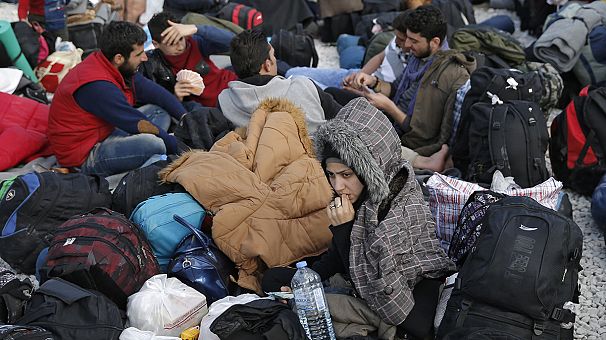So, no U.S. citizens with teaching certificates? Perhaps the mission is to lower payroll costs and meet quotas? Or join unions and teach selected history…
Is there a state left that can define what citizenship is? Is there a state that is protecting ‘the pursuit of happiness’? Apparently teaching, a noble profession, or at least used to be is no longer noble.
For reference, Tashfeen Malik, the female San Bernardino killer could have been a teacher in your child’s classroom, she came into the United States under false documents…no documents? What is the difference?
NY to let undocumented workers become teachers
ALBANY — Undocumented immigrants in New York will be able to apply for teacher certifications and professional licenses, according to the state Board of Regents.
The board that oversees education policies in New York voted Wednesday to allow people who can’t get legal residency because of their parents’ immigration status to seek teacher certifications. They also will be able to apply for a license from among the 53 professions overseen by the state Education Department, including a variety of medical professions.
“These are young people who came to the U.S. as children,” state Education Commissioner MaryEllen Elia said in a statement. “They are American in every way but immigration status. They’ve done everything right. They’ve worked hard in school, some have even served in the military, but when it’s time to apply for a license, they’re told ‘Stop. That’s far enough.’ We shouldn’t close the door on their dreams.”
The Board of Regents pointed to a June 2012 policy by the Obama administration called the Deferred Action for Childhood Arrivals that allows individuals who came to the U.S. as children and meet certain guidelines to request consideration of “deferred immigration action” for two years that can be renewed.
The federal policy, the board said, applies to young people who usually get their immigration status from their parents, many of whom are undocumented.
“As a result, most of these individuals have no current mechanism to obtain legal residency, even if they have lived most of their lives in the U.S.” the Board of Regents said in a statement.
But people in the system are prohibited from obtaining teaching certification and licenses in certain professions, the board said, including pharmacy, dentistry and engineering.
The regulation by the Board of Regents will be finalized after a public-comment period.
Sen. Terrence Murphy, R-Yorktown, Westchester County, ripped the policy.
“Allowing lawbreakers to teach, or practice medicine, says a lot about how backwards our priorities truly are in New York,” Murphy said in a statement. “This is another example of why rule-making by unelected bureaucrats is what is ruining New York state. Will they next unilaterally enact free college tuition for illegal immigrants?”
He said New York doesn’t allow a military spouse with an equivalent license in another state to teach in New York, so “Elia should be focusing on reciprocity and interstate licensure for those who have earned it, instead of doing further harm to our already broken immigration system and rewarding lawbreakers.”
Gov. Andrew Cuomo said he has yet to review the new education policy to determine its legality.
“It depends on how they write the policy, as to whether or not it’s legal and constitutional, and I haven’t seen anything,” Cuomo said when asked about the policy by reporters Thursday in Albany.
Democratic lawmakers praised the action. Democrats have been pushing for the Dream Act in New York, which would allow immigrants in the country illegally to access state financial aid for college. Republicans have opposed the measure.
“This is a tremendous win for New York’s students,” Assembly Speaker Carl Heastie, D-Bronx, said in a statement. “The Assembly majority has always led the charge to expand opportunities for every student, and we have championed issues like the DREAM Act and greater investment in higher education to show our commitment to all of the families who have made New York their home.”

